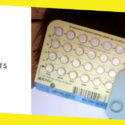Legal Side of Surrogacy Programs in Ukraine
Ukraine is known for its relatively liberal surrogacy and reproductive laws, even for foreign citizens. This is particularly why many couples choose this country to legally become parents via ART or other medical technologies for reproduction.
And of course, as intended parents, you deserve to have your rights known and protected. This is why you need a surrogacy attorney to help you during the process. This kind of professional specializes in international reproduction laws and, of course, in Ukraine’s surrogacy regulations and nuances.
So, what should you know about the legal side of surrogacy in Ukraine?

Contents
ToggleParticipation requirements
The surrogacy program in Ukraine has limitations both for egg donors and intended parents.
First of all, the intended mother should fall under one or more medical conditions that won’t allow her to carry a fetus on her own. These conditions are:
- morphological (both inborn and developed) deformations of the uterus or cervix;
- synechiae of reproductive organs that make it impossible to carry to term;
- difficult somatic diseases that contradict the pregnancy or make it impossible to carry to term;
- a history of multiple failed attempts to carry a fetus to term after successful embryo implantations.
To confirm these conditions, you need to provide a local fertility clinic with appropriate medical records that are already legally translated and legislated in Ukrainian.
Also, genetic material donors have to undergo a set of genetic and medical tests ot prove their eligibility for surrogacy program participation.

Intended parents must be married
This is not an uncommon law ‒ the gestation by a surrogate mother is only possible if the intended parents are married and can provide the fertility clinic with their marriage certificate.
The certificate, as well as other identification documents, should be legally translated to Ukrainian with Apostille. The certificate, whether it’s a copy or not, should be signed by a notary.
The contract between all surrogacy program parties must be signed
If every surrogacy program party complies with the requirements for participation, and the surrogate mother is approved by the intended parents, a contract can be signed. It should describe the terms and rights of both surrogate mother and intended parents, including financial aspects, and child-carrying details. It is written in two copies, one for each party. Also, the contract should be written both in the language of the intended parents and in Ukrainian.
It is also worth mentioning that contracts can be reviewed by surrogacy attorneys to make sure there are no blind spots and everyone is satisfied with the conditions the contract provides.
Parental rights from the very childbirth
Luckily, Ukrainian reproductive laws allow recording the indended parents’ names in the medical documents of the child after the delivery.
The birth registration can be granted to both parents if the surrogate woman was impregnated artificially by an embryo with genetic material from both intended parents. It can be done only if a marriage certificate and an agreement for implantation are present, though.
If there’s only a single parent’s genetic material present, the biological parent of the surrogate child is written into the birth registration, supplied with the surrogate mother’s consent. After the birth certificate is issued, the biological parent’s spouse can apply for adoption.
The child inherits citizenship from the intended parents
In Ukraine, there is citizenship inheritance by the blood system and not by the land. With that in mind, a surrogate child of foreign parents inherits their citizenship. It can only be registered as a Ukrainian if it didn’t acquire citizenship from parents that live in Ukraine legally but don’t have a Ukrainian ID.
You can ask more questions about surrogacy legality in Ukraine ‒ the HermanFamily consulting & law agency is located in Lviv, Ukraine, and helps clients worldwide. Dial +38 097 25 26 980, email [email protected], or visit the office on K. Levytskoho str, 55a to get answers.
Recommended For You
12 Health Benefits of Regular Exercising
Most Inside
Most Inside offers high-quality recommendations and valuable updates to enhance all aspects of your life, providing premium guidance and enriching experiences.




